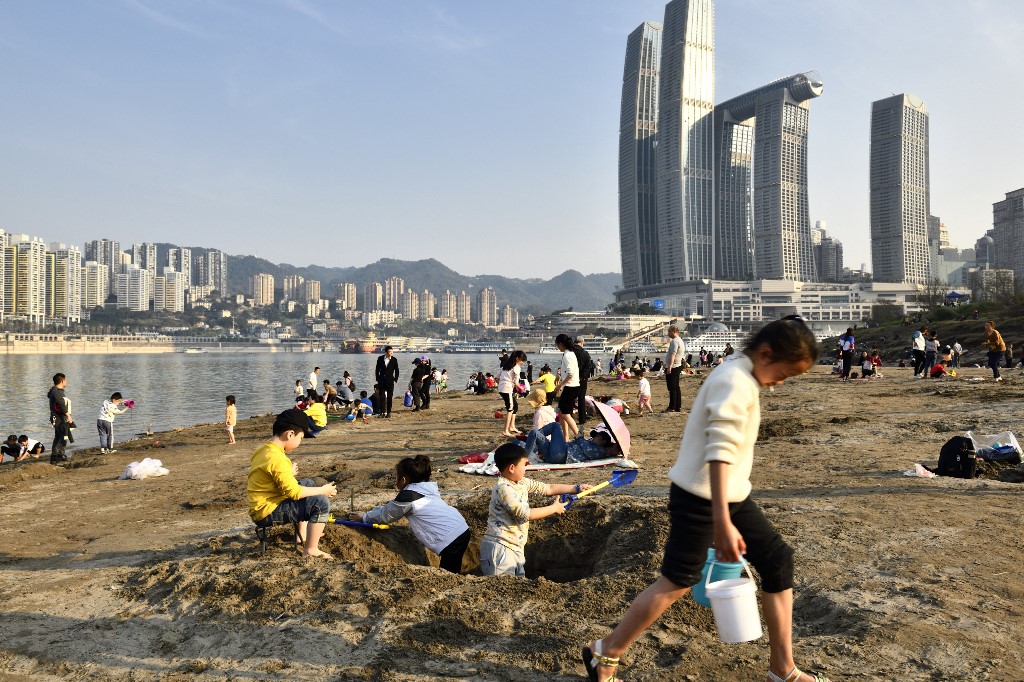(ATF) Officials in Chongqing – a sprawling megacity of about 30 million on the Yangtze River in southwestern Sichuan – are planning major infrastructure projects, such as high-speed rail links and a large wharf at home.
But businesses in the city are also planning developments in different parts of Southeast Asia, including an automobile base in Indonesia and a big steel plant in the south of the Philippines.
For the past two years, ASEAN nations have been Chongqing’s largest trading partners. And the city hopes to build on its strong links with Southeast Asian nations.
Data from the Chongqing Municipal Commission of Commerce shows that the city has frequent economic and trade exchanges with RCEP member countries. In 2020, Chongqing’s foreign trade import and export volume was over 651 billion yuan (close to $100 billion). And trade between the city and RCEP member states was close to a third of the overall figure (204 billion yuan, or 31.4%).
Work is continuing on a High-Speed Rail Link to Yunnan from Chongqing West Railway Station to Kunming South Railway Station. The line, which is just under 700 kilometres long, has 21 stations and could have trains reaching speeds of up to 350 kilometres an hour. The Chongqing section is 84 kilometers long and is expected to be completed in 2024.
As ATF reported previously, China plans to connect all provincial capitals by high-speed rail. There are also plans for a High-Speed Rail Link from Chengdu to Yuzhong that will connect Chongqing and Chengdu in Sichuan Province. The total length is about 292 kilometres and the section through Chongqing is 101km long. Construction will start this year and is expected to be completed in 2025.
Projects in Java and Davao
Meanwhile, Xiaokang auto group regards Indonesia as its first choice for overseas investment, and invested $150 million in 2014 to build a modern production base in Serang, in Banten Province on Java Island, west of Jakarta. It uses this as the fulcrum of the group’s globalisation strategy to promote business overseas.
ASEAN links have been strong. Xiaokang Indonesia has nearly 500 employees, 95% of whom are local people. And it has created nearly 2,000 jobs for both the upstream and downstream of its industrial chain.
In the future, Xiaokang Indonesia will also launch more new models of SUVs and commercial vehicles, as well as new models and new technologies represented by new energy sources, to meet market demand in accordance with the Indonesian market.
The Carro group from Singapore is another Asean link. Carro Group was established in 2016 and engaged in secondhand car buying and selling, plus consumer finance, insurance, after-sales and other businesses. It is Southeast Asia’s largest used-car market platform unicorn. Now Indonesia, Thailand, Malaysia, Singapore, and Vietnam have operations. Its annual revenue is more than 1.5 billion yuan (about $230 million).
At the end of 2020, Carro Group unveiled plans to set up a financial insurance technology centre in Chongqing. The first phase of the project will be establishing a research and development team of about 50 people, and building a talent base to serve business in Southeast Asia with a team of artificial intelligence, big data, and vision technology engineers.
Currently, Carro Group has settled in Xiantao Data Valley in Chongqing’s Yubei district, with registered capital of 20 million yuan for the first phase of this project.
Another ASEAN link began in 2019, when the Panhua Group invested in the construction of branches and steel industrial parks in the Philippines, a country that has been part of the “Belt and Road” scheme, Chongqing Morning News said.
Panhua Group’s has been working on plans for an integrated steel project in the south of the Philippines that could involve total investment of $3.5 billion. It allegedly involves the building of a large steel plant with an annual output of 10 million tons that will be divided into two phases of about three years in General Santos City, south of Davao. The project covers an area of 300 hectares.
























